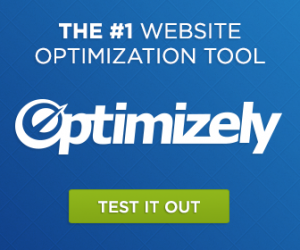
The digital marketing realm is witnessing a significant transformation as businesses and SEO experts move from traditional SEO practices to the more sophisticated approach of semantic SEO, signaling a crucial shift in strategies for enhancing online visibility. This transition underscores a fundamental transformation in understanding and leveraging the intricacies of search algorithms, particularly those of modern Google, which now prioritize context, intent, and the relational meaning of content over mere keyword density.
The Imperative of Semantic SEO
At the heart of semantic SEO lies the principle of enhancing not just the visibility but the relevance of content in search queries. This approach delves into the deeper layers of language, interpreting the nuances and contexts that define a searcher’s intent. It’s a sophisticated dance with search algorithms, where the goal is to align content with the semantic and syntactic intricacies that these algorithms use to understand and rank information.
Why is this shift critical for businesses and SEO professionals? The answer lies in the evolving intelligence of search engines. Modern Google, with its advanced algorithms like BERT and RankBrain, has moved beyond the simplistic parsing of keywords to a more profound comprehension of content’s context and user intent. This evolution means that traditional SEO strategies, which often hinge on keyword optimization and link-building, no longer suffice in achieving top rankings. Instead, a more holistic approach that encompasses the semantic richness of content is required.
The Case for Upgrading SEO Knowledge
The transition to semantic SEO necessitates a paradigm shift in SEO knowledge and strategies. For businesses and SEO experts, this means venturing beyond the comfort zone of traditional tactics and embracing the complexity of semantic principles. It involves understanding the subtle signals that search engines use to discern the quality and relevance of content, from the use of related keywords and synonyms to the structure and interconnectivity of content across a website.
Upgrading one’s SEO knowledge to incorporate semantic principles is not just beneficial; it’s imperative in a landscape where search engines are increasingly prioritizing user experience and intent. By aligning with these priorities, businesses can enhance their online visibility, attract more targeted traffic, and ultimately, achieve a competitive edge in the digital marketplace.
Semantic SEO in Practice – Beyond Keywords
Implementing semantic SEO involves a multifaceted approach that transcends traditional keyword optimization. It requires a deep dive into the thematic essence of content, ensuring that it comprehensively addresses the queries and needs of the target audience. This means creating content that is not only rich in relevant keywords but also structured in a way that reflects the natural language and questions of users.
Semantic SEO emphasizes the importance of building a cohesive content ecosystem. This involves interlinking related content within a website to create a network of information that search engines can easily parse and understand. Such a strategy not only enhances the user experience by providing comprehensive resources but also signals to search engines the depth and breadth of the website’s content on particular topics.
Page Ads – Your Ally in Embracing Semantic SEO
For businesses seeking to navigate the complexities of semantic SEO, Page Ads emerges as a formidable ally. This platform offers a suite of tools and resources designed to optimize digital content for the semantic web. From content creation and optimization to analytics and insights, Page Ads empowers businesses to enhance their semantic SEO strategies, ensuring that their content resonates with both search engines and users.
The Future of SEO
As we look toward the future, the significance of semantic SEO is set to grow exponentially. With search engines continually advancing their algorithms to better understand and cater to user intent, businesses and SEO experts must adapt or risk obsolescence. The journey towards semantic optimization is not just about staying ahead in search rankings; it’s about redefining the way we create and disseminate content in the digital age.
The shift towards semantic SEO represents a critical evolution in digital marketing strategies. By embracing this approach, businesses can ensure that their content is not only visible but also valuable and relevant to their target audience. In the quest for digital visibility, semantic SEO is not just an option; it’s a necessity. As the digital landscape continues to evolve, those who master the art and science of semantic SEO will find themselves at the forefront of online success.

